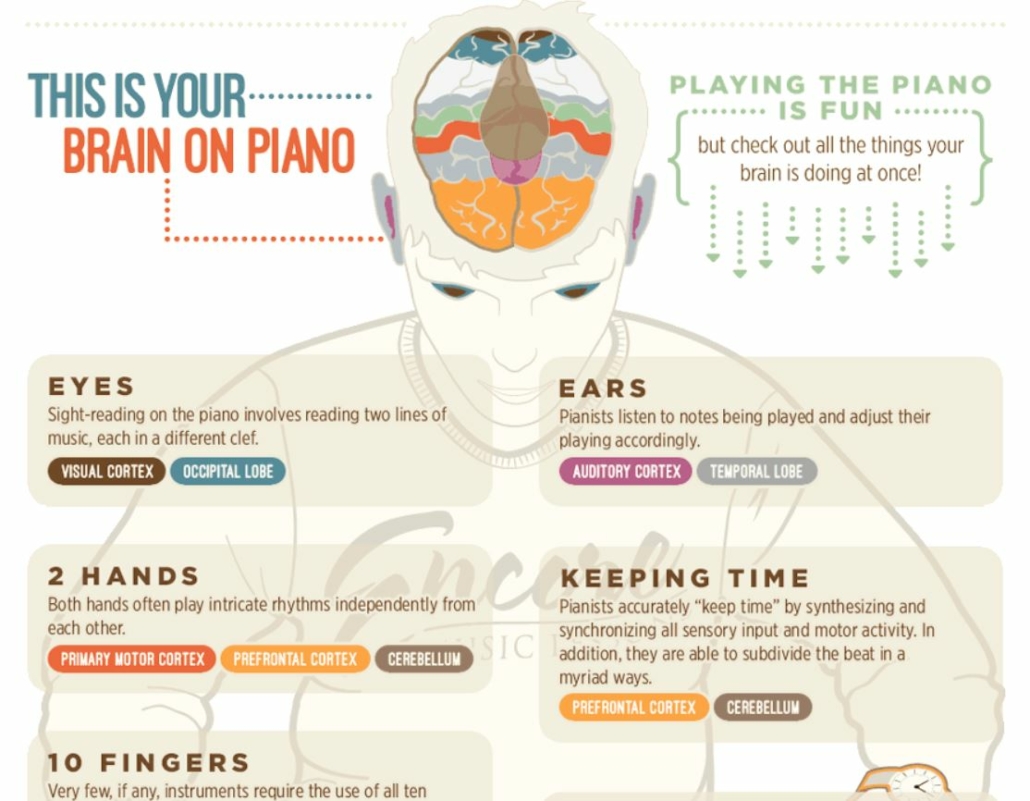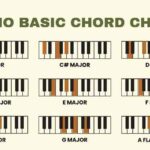12+ Benefits of Playing Piano: Comprehensive Development for both Adults and Kids
Learning to play the piano offers much more than the ability to create beautiful music. It builds skills that benefit the brain, body, and emotions of both children and adults. Playing the piano enhances cognitive abilities, improves coordination, and promotes emotional well-being. In this blog, Pianos in the Parks will help you understand more about the benefits of playing piano for everyone.
See More:
- 7 Easiest Ways to Improve Your Piano
- 5 most useful how to maintain an electric piano
- How to Maintain a Grand Piano
- Tune The Piano and All You Need to Know
Mental Benefits: Is Playing Piano Good for Your Brain?
Playing the piano isn’t just an exercise in musicality; it significantly enhances brain function in a variety of ways:
1. Enhanced brain function: Studies show that learning an instrument, particularly the piano, strengthens both sides of the brain. This process helps improve cognitive functions, including memory, concentration, and problem-solving skills.
2. Improved coordination: As you play, your brain works to process multiple elements simultaneously—reading music, coordinating hand movements, and listening to the notes. This multitasking enhances mental sharpness, improving academic performance in children and helping to reduce cognitive decline in adults.
3. Enhancing Creativity and Artistic Appreciation: Playing the piano helps nurture the soul, enhance artistic appreciation, critical thinking, and appreciate beauty. Music is a bridge that connects people, allowing them to share emotions and build good relationships.
4. Encourage brain plasticity: For children, it helps build strong neural connections, which is why the benefits of playing piano at a young age are so profound. For adults, it keeps the brain agile, reducing the risk of dementia and memory loss. Clearly, the advantages of learning piano extend well into adulthood.
However, the advantages of playing the piano aren’t limited to cognitive improvement. They also include emotional and physical benefits, making it a well-rounded activity for people of all ages.

Emotional Benefits: Stress Relief and Self-Expression
Learning to play the piano has a profound impact on emotional well-being, providing an outlet for emotional expression and stress relief:
5. Stress Relief: It provides an outlet for self-expression and stress relief. Children use the piano to channel their feelings, while adults find comfort in playing after a long day. This is one of the major benefits of playing piano for both children and adults.
6. Mood Regulation: Music has a unique ability to evoke emotions. When you play the piano, you have control over the tempo, key, and dynamics, allowing you to create music that mirrors your mood and feelings.
7. Boost in Self-Esteem and Confidence: Accomplishing milestones like learning a new piece or mastering a difficult technique increases self-confidence. It’s a fulfilling feeling to watch your progress and achieve personal goals.
8. Encouraging Patience and Discipline: Learning to play the piano requires persistence, effort, and regular practice. The learning process helps cultivate discipline, patience, and determination, which are important qualities in life.

Physical Benefits: Coordination and Dexterity
Though it may seem like a purely mental activity, playing the piano offers distinct physical benefits as well:
9. Improved posture: Maintaining proper posture while playing the piano can help alleviate back pain.
10. Increased dexterity: The intricate finger movements help strengthen muscles, improve dexterity, and maintain hand mobility. For those worried about losing fine motor skills as they age, the piano can be an excellent way to maintain them.
Social Benefits: Connecting with Others Through Music
Beyond personal development, playing the piano can also open doors to meaningful social interactions:
11. Building Connections Through Music: Whether you take lessons in a group or perform with others, learning to play the piano helps you build connections with people who share your musical interests. This may result in the development of strong social ties.
12. Performance Opportunities: For those interested in performing, the piano offers various opportunities – from recitals to joining local bands or orchestras. Playing in front of an audience, no matter the size, can improve your stage presence and performance skills.
Playing Piano – A Skill for Life
One of the greatest benefits of playing piano is that it’s a skill you can continue to enjoy at any stage of life. Unlike physical activities that might become difficult with age, playing piano remains accessible. Whether you’re learning classical pieces or playing pop tunes, it’s an activity that can grow with you over time.
The piano offers endless opportunities for personal growth. You can challenge yourself with more difficult pieces or simply play for relaxation. It’s a lifelong source of joy, achievement, and fulfillment, no matter your age or level of expertise.
Conclusion
In summary, the benefits of playing piano are vast, impacting mental, physical, emotional, and social well-being. From improving brain function and hand-eye coordination to providing an emotional outlet and fostering connections with others, playing the piano is a skill that brings rewards throughout life. If you’ve been thinking about starting your piano journey, now is the perfect time to embrace this rewarding and enriching experience.




Leave a Reply
Want to join the discussion?Feel free to contribute!